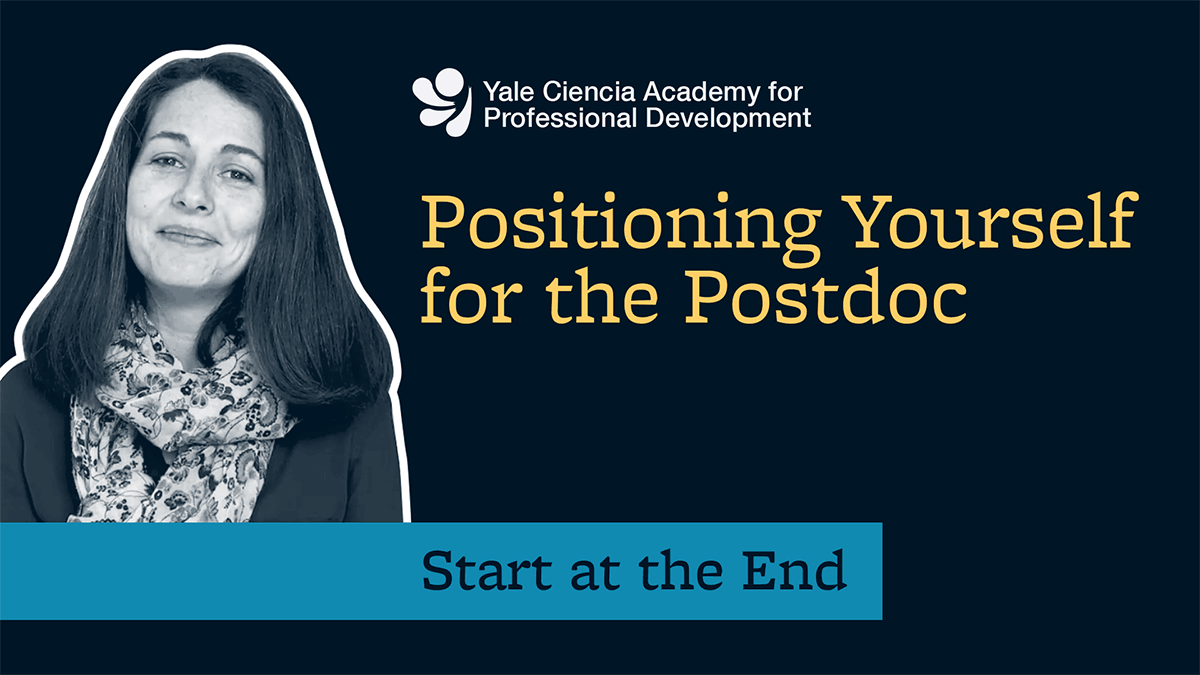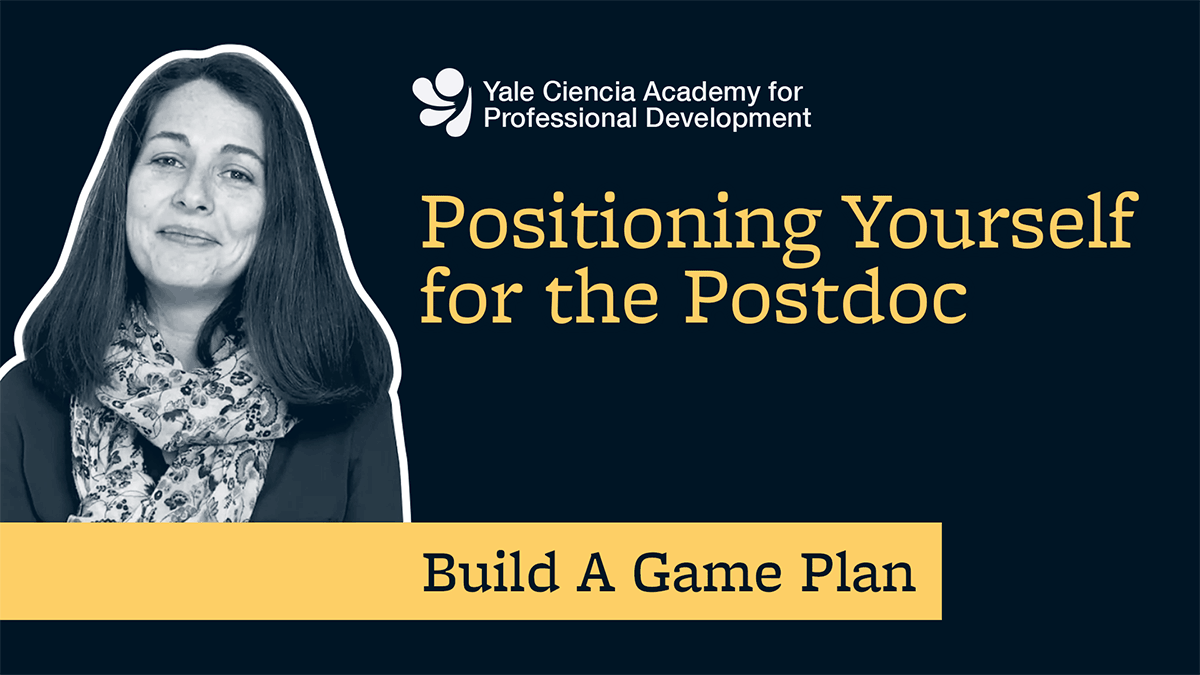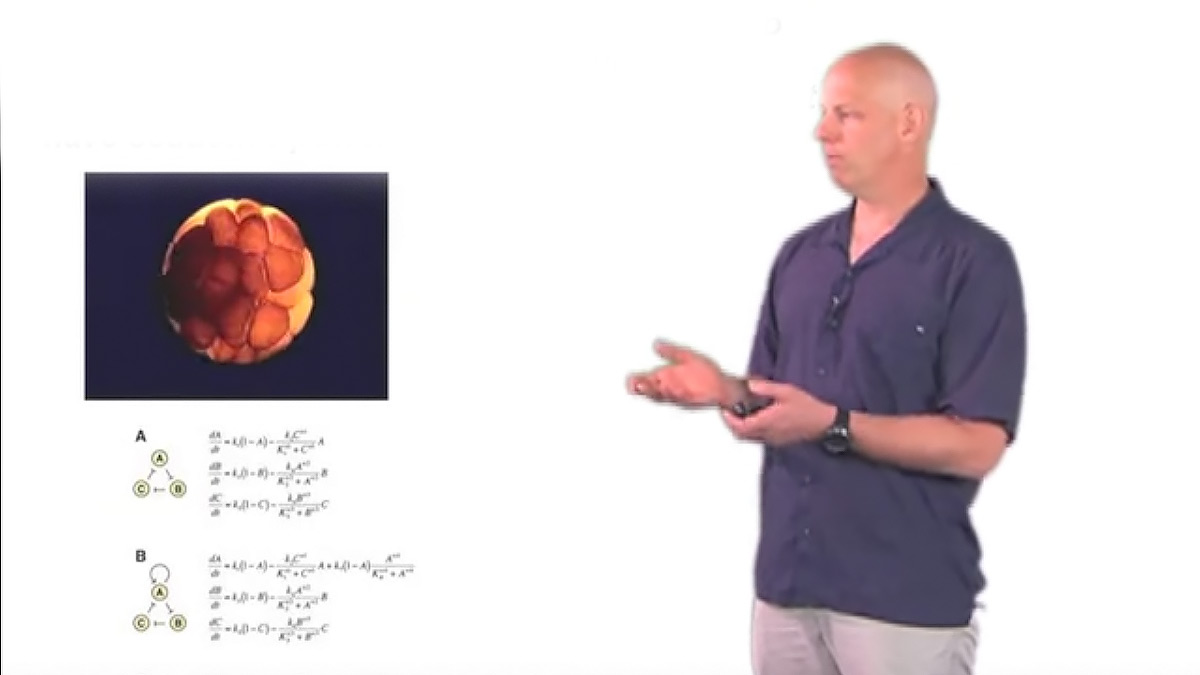Talk Overview
Leaving isn’t easy. As you prepare to complete your PhD, crossing the finish line may be more complicated than you anticipated. The two big questions are: When should I leave? and How should I leave? In this session, you will learn how to create a good exit strategy; identify and navigate role conflicts with your research mentor or principal investigator; and negotiate and apply effective strategies to transition smoothly from your PhD into your postdoc.
This session is part of the ‘The Strategic Postdoc’ course, created by the NIH-funded Yale Ciencia Academy in collaboration with iBiology.
Session Narrative:
Towards the end of your PhD, it can be tricky to create an exit strategy that you and your research mentor agree on. As a trainee, your objectives mainly focus on publishing your work, completing your degree, and successfully transitioning into the next stage of your career.
In contrast, your principal investigator’s (PI’s; research mentor or advisor) objectives may look very different. For example, their objectives may include: maintaining the productivity of the lab, managing the performance and behavior of each member of the lab, completing specific projects, planning succession, and preparing to renew or apply for a grant. Many of these responsibilities fall under one of the three roles PIs have: (1) mentor, (2) supervisor, and (3) trainer (see more in Session 1). Juggling these three roles can create conflict at specific stages of your training and it can be hard to know which role is more dominant and how this changes your dynamic with your advisor.
Role conflict can also increase the power differential that exists between your research mentor and you. This is because each role comes with different types of power, and power is usually skewed in the direction of your research mentor (see more here).
Now, let’s connect these pieces and see how these power differentials can show-up in your relationship with your advisor.
Table 1: The six different types of power and how each is demonstrated in PI/trainee relationships
| Power Type | Role Conflict | Role |
|---|---|---|
| Coercive | If your supervisor is not pleased with your decisions or performance, they could take action against you. | Supervisor |
| Expertise | You may defer to your PI’s suggestions because you are aware that their professional expertise is sound and well-regarded. | Mentor |
| Information | You are aware that your advisor has or controls access to information that you need to succeed. | Trainer |
| Referent | You want to maintain a good relationship with your advisor because you admire and respect them; you may even strongly identify with them. | Mentor |
| Reward | Your advisor has significant influence during your transition point because their endorsement typically carries the most weight during interview season. | Mentor |
| Supervisory | As your supervisor, your advisor has the right to direct your activities as they see fit. | Supervisor |
So what happens when these roles conflict with your goals? What happens when the power dynamics make it hard for you to leave? What do you do if this complicates your relationship with your research mentor? How do you move forward without burning bridges or capitulating to decisions that prevent you from leaving?
Understanding the power differential and role conflicts between you and your PI will help you create your exit strategy. For example, one important action you can take to level the playing field is to seek mentors that can help you with specific parts of your transition. In fact, during any difficult transition or situation in your career, you should surround yourself with mentors who have experience with those milestones or challenges.
There are many roles that each mentor can play as you transition out of the PhD. For example, one mentor may serve as a personal confidant that provides emotional support during stressful career experiences. Another mentor may help you think about the research topics and labs that would best fit your interests and goals. Yet another might help you develop your interviewing skills. You can also find mentors that have the expertise to give you critical feedback about your research. Mentors play key roles in your professional journey and can support, educate, validate, direct, and train you as you navigate the twists and turns of preparing to leave your PhD.
Activities (Exercises and Self-Reflection):
- Questions:
- Activity 4.1: Negotiating with Your PI
- Activity 4.2: Building Your Advisory Team
- Answers:
- Activity 4.1: Negotiating with Your PI
Speaker Bio
Laurence Clement

Dr. Laurence Clement is a Senior Knowledge Development Manager at Genentech. From 2014-2021, she served as Program Director for the Office of Career and Professional Development at the University of California, San Francisco (UCSF). There, she was involved in developing and teaching courses and workshops to prepare research trainees for academic careers at both research-… Continue Reading












Leave a Reply